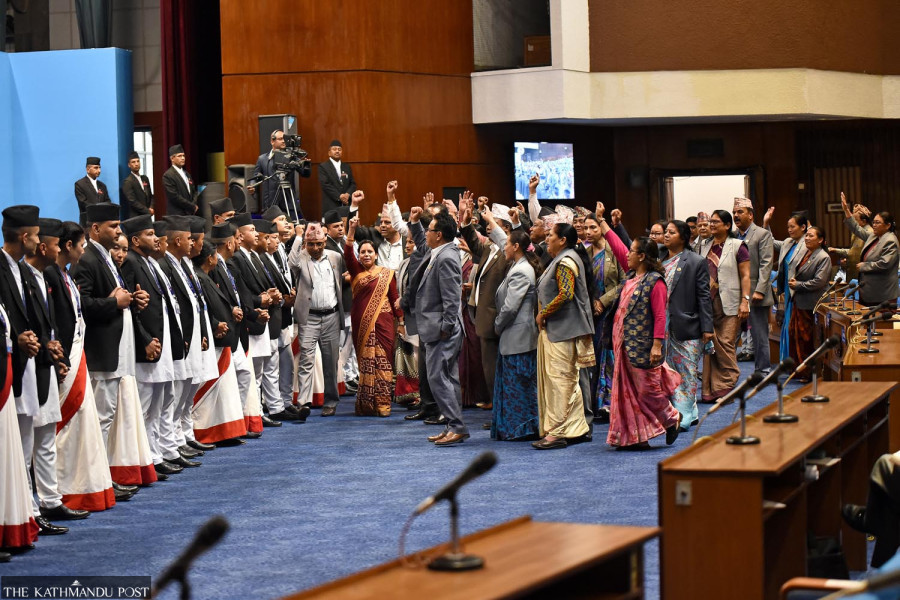Editorial
Not playing their part
There is a lack of effort in clearing the now three-week-long House obstruction.
That the CPN-UML has little regard for the Parliament has time and again been proven. After all, it is a party whose supreme leader, KP Sharma Oli, tried to dissolve the last House not once but twice when he was prime minister. The main opposition has now been obstructing the House for over three weeks, calling for forming a high-level panel to probe into the 60-kg gold smuggling case. The continued obstruction has essentially rendered the parliamentary process null and void. Parliamentary proceedings are supposedly an anathema to the opposition UML; there is no other way to understand the party’s complete lack of imagination as an opposition party.
On Wednesday, President Ramchandra Paudel met UML chair KP Sharma Oli to call for an end to the obstruction and urged major parties in Parliament to work together to get the House running again. He had earlier met Speaker Devraj Ghimire and National Assembly chair Ganesh Prasad Timilsina for the same purpose. Speaker Ghimire has also called for parties to help end the obstruction. However, the belated efforts by the President and the Speaker does not seem to have had much effect on the UML. As subdued are the efforts of top leaders of the ruling parties, including Pushpa Kamal Dahal, Sher Bahadur Deuba, and Madhav Kumar Nepal. Their lackadaisical attitude to opening the House has boosted the general public’s suspicion that these leaders can go to any extent to strike personally favourable deals, but do not care a jot about urgent national issues.
Moreover, the Speaker’s role in the House cannot be called neutral, as he has made no secret of his bias for the UML. Last week, he was criticised for favouring the UML when he allowed only the lawmakers with favourable views of the party to speak in the lower house before calling it a day. He will undoubtedly have some emotional affinity with the old party for which he put in blood and sweat for decades, but his success as a Speaker lies in his ability to subdue his emotional side. In order to maintain his credibility as the presiding officer of the House, he would do well to shepherd proceedings and maintain order without any show of overt bias.
And when it comes to the UML’s antics, the less said, the better. Its actions do not show, in any way, that it is a responsible opposition working on people’s behalf. The idea of opposition in a democracy is to ask serious questions to strengthen the democratic process. The only way to do so is to debate vital issues in the House. While the party’s attempts at demolishing the entire parliamentary process when it was in power were tragic, what it is doing today is nothing short of a farce. The opposition party that has weathered seven decades of Nepal’s tryst with democracy is expected to do better. But then the onus also lies on other major political actors as well as the Speaker to shun petty political calculations and play their part in getting Parliament back into the business of legislating.




 10.12°C Kathmandu
10.12°C Kathmandu














